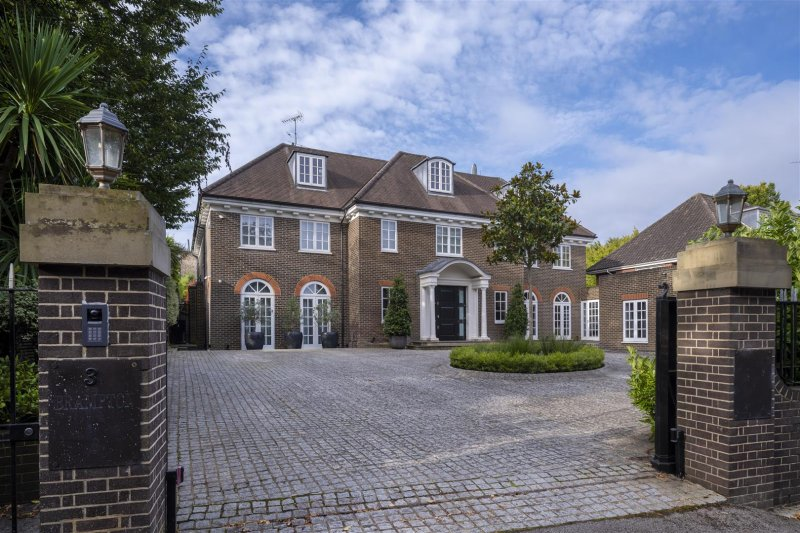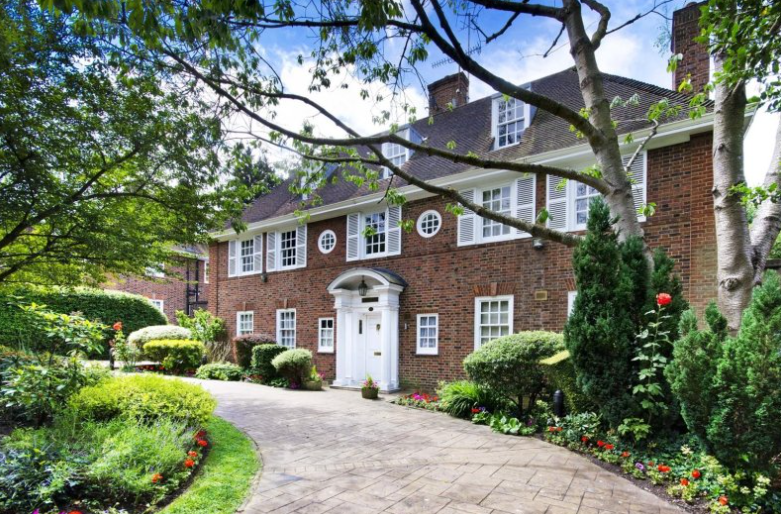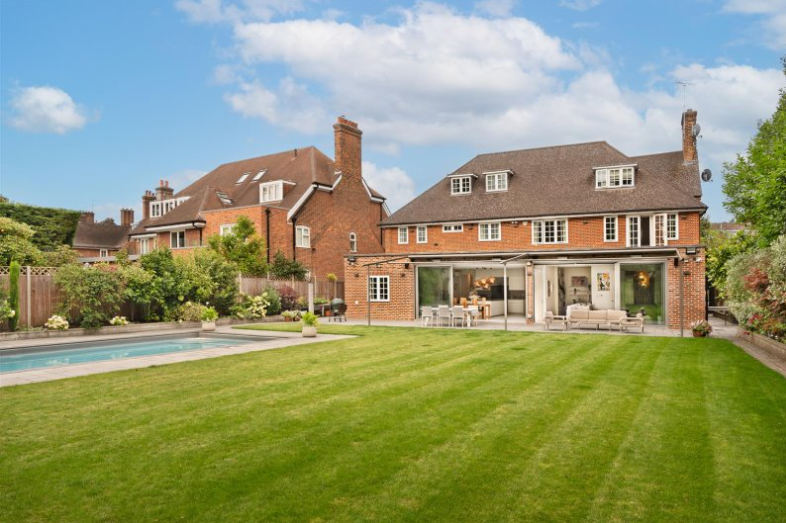London is known around the world for its luxury real estate, especially in three famous areas that have attracted top buyers for years. The Bishop’s Avenue, Hampstead, and Highgate are more than just addresses – they represent status, privacy, and significant investment in some of the city’s most desirable neighbourhoods.

The Bishop’s Avenue : Billionaire’s Row Unveiled
Dubbed “Billionaire’s Row,” The Bishop’s Avenue in Hampstead stands as one of the world’s most expensive residential streets. Houses here often sell for over £100 million, and the street is known for its huge mansions and great wealth.
The avenue’s appeal extends beyond its enormous property values. Residents enjoy total privacy behind imposing gates and manicured grounds and are just minutes from the City of London. Notable residents have included members of royal families, tech moguls, and entertainment industry titans who value the street’s privacy alongside its prestige.
Recent transactions on The Bishop’s Avenue have redefined the ceiling of London’s luxury property market. One modern mansion, spanning 50,000 square feet, sold for over £200 million, featuring amenities that read more like a five-star resort than a private residence. Indoor swimming pools, private cinemas, and temperature-controlled wine cellars have become standard expectations rather than luxury additions.

Discover London’s most exclusive homes
Hampstead : Where History Meets Modern Luxury
Hampstead is loved for its mix of village charm and metropolitan convenience. This storied enclave has long drawn creatives and intellectuals, with literary legends like John Keats and Agatha Christie once calling it home. Today, that legacy continues with residents such as Daniel Craig, Stephen Fry, Ricky Gervais, Jude Law, Helena Bonham Carter, and Judi Dench, all drawn to the area’s cultural richness, privacy, and timeless appeal.
Homes in Hampstead range from classic Georgian houses worth £10-20 million to modern, more expensive designs. With Hampstead Heath nearby, residents enjoy 790 acres of parkland, providing them with ample space and tranquillity within London’s urban landscape.
Celebrities have long chosen Hampstead for its tree-lined streets and period properties. The area’s planning restrictions, which preserve its historic character, simultaneously limit supply and enhance long-term value retention. Properties here rarely remain on the market for extended periods, with discerning buyers recognising the rarity of combining central London accessibility with such distinctive residential character.

Highgate : Elevated Luxury with Panoramic Views
Highgate is situated on high ground in London, offering stunning city views and a tranquil, almost countryside atmosphere. The area’s Victorian and Edwardian mansions, many set within substantial private grounds, have attracted notable residents, including Liam Gallagher, Harry Styles, George Michael, Kate Moss, Robert Powell, Jamie Oliver, and numerous business leaders looking for a quiet escape from city life.
Highgate’s homes hold their value well and often do better than the rest of London’s market. The combination of limited housing stock, stringent planning controls, and proximity to excellent schools creates sustained demand from both domestic and international buyers.
The area is also renowned for its rich history and culture, particularly Highgate Cemetery and its connections to famous writers. Many homes keep their old details thanks to careful restoration, which attracts buyers who appreciate classic style as well as modern comforts.
Investment Dynamics and Market Performance
Each of these three areas offers unique investment options that attract very wealthy buyers seeking both a great lifestyle and strong returns. Homes on The Bishop’s Avenue are often seen as status symbols and are bought more for their value than for rental income.
Hampstead and Highgate offer buyers a range of choices, from smaller, older houses that can be renovated to large family homes that have steadily appreciated in value over the years. Both areas have good transport links, including the Northern Line and easy access to London’s business centres, which keeps them popular with both residents and investors.
Explore prime London real estate with Glentree
Future Outlook and Acquisition Opportunities
Market dynamics in these postcodes remain influenced by global economic conditions, but strong interest from international buyers keeps prices high. Recent planning applications suggest ongoing interest in both restoration projects and contemporary new builds, indicating confidence in the long-term market prospects.
For investors considering these markets, timing and local expertise prove crucial. Properties in these locations rarely offer traditional marketing approaches – discrete negotiations and off-market opportunities often characterise the most significant transactions.
The combination of scarcity, prestige, and proximity to central London ensures that these addresses will continue to attract the world’s most successful individuals, supporting both lifestyle aspirations and investment objectives for discerning buyers who understand their unique appeal.


